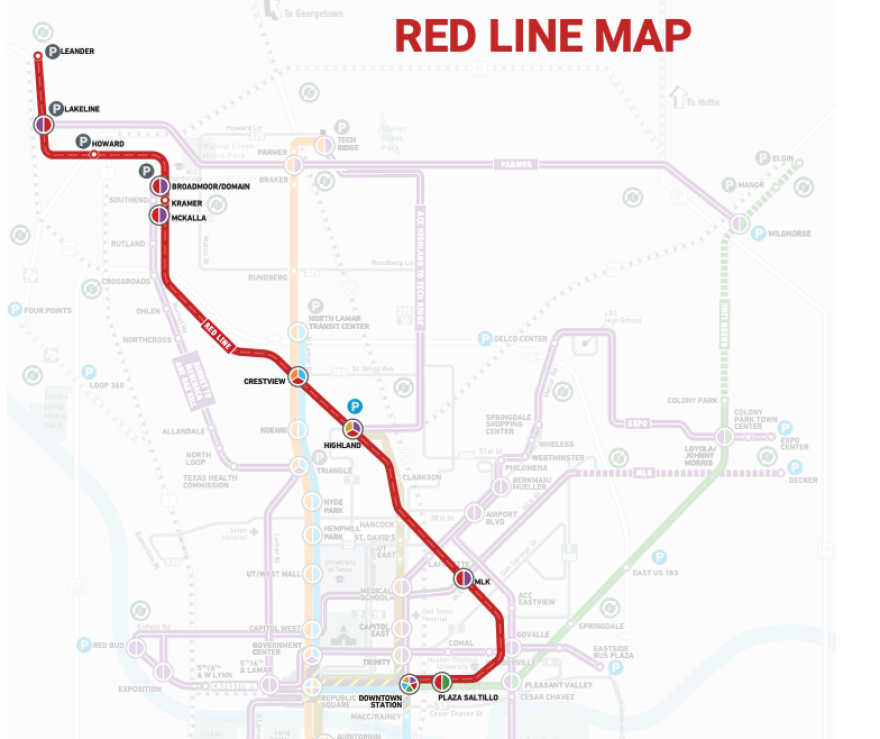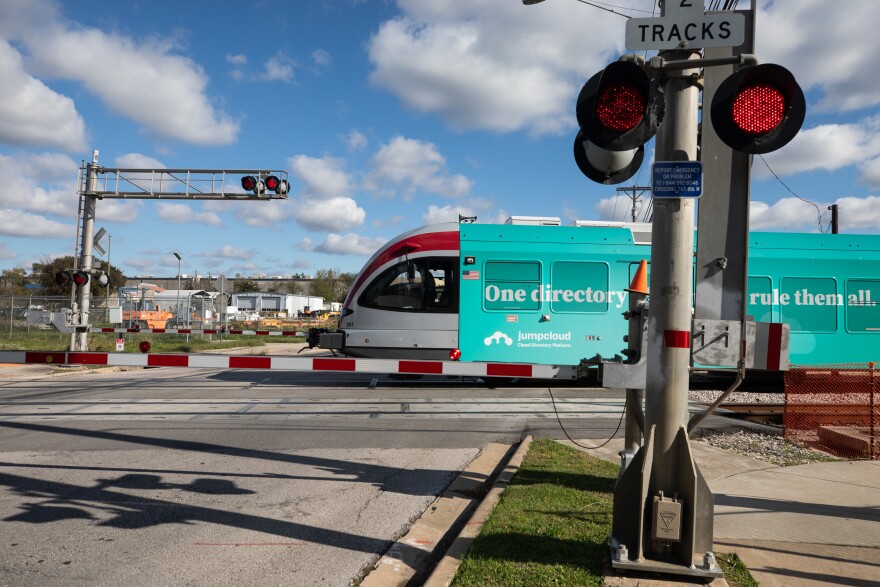This piece originally aired Nov. 8, 2021.
Four rail crossings in densely populated areas of North Austin are on track to become "quiet zones," a federal designation that allows train operators not to blow their horns every time they pass over a cross street.
The process is expected to take between one and two years. The cost per crossing can reach as high as $1 million and is paid for by Capital Metro, federal grants and in some cases, local governments.
The crossings are at Kramer Lane, Rutland Drive, Braker Lane and Rundberg Lane. Capital Metro owns the track and rents it out to freight companies, but most of the horn blasts come from MetroRail trains that pass each crossing by at least 37 times on weekdays.
"The horn of the MetroRail is way too loud for this area causing distress," reads one of many complaints filed with Cap Metro.
Another resident complained to the agency about "the blaring noise that echos at 5:45 am-10 pm" and asked if the transit agency could use a horn that "sounds less like [an] injured whale."

Train horns are intended to convey a simple message: Get out of the way or you could die. In 2020, 191 collisions occurred at Texas rail crossings, the most of any state, according to the nonprofit rail safety organization Operation Lifesaver. Eleven people were killed and 69 others injured.
Federal regulations require locomotives be equipped with horns that produce sound of between 96 and 110 decibels at 100 feet. Cap Metro's commuter trains are equipped with Tyfon MKT 75/370 horns, which meet federal regulations and are even louder close up: 125 decibels at 15 feet.
"Over 100 decibels is very loud," said Dr. Sangeeta Kamdar, an audiologist at UT. "When you start approaching about 120 decibels, you're at the threshold of pain."
How long a person is exposed to the sound affects how severely it harms hearing. But the content of the sound affects the amount of stress induced. That's why people can be exposed to loud music for hours at a concert and have the time of their lives.
"It's entirely different in terms of the frequency ranges we listen to. [Music] is meant to be pleasurable," Kamdar said. "Noise, on the other hand, is not that. ... If there's an anticipation around that, and you know it's going to happen every 15 minutes, and it's already something that you're not looking forward to ... that can also cause more stress."
People who work next to the Kramer MetroRail station hear the horns all day.
"It catch me off guard," said Deonte Thompson, whose job at a warehouse next to the tracks often requires him to work outside. "It's real loud. I be like, dang!"
Roger Killingsworth, who has an office on the other side of the tracks, says he plans to relocate when his lease is up.
"Anytime I'm on the phone or something like that ... people can hear the horn," he said. "It's a constant muting of the mic kind of thing."

Cap Metro has 86 crossings along the 32-mile Red Line. All but six crossings have achieved the federal designation of quiet zone. Of those six, four are clustered in North Austin.
The transit agency has begun the process of establishing a diagnostic review committee — a panel of railroad officials and state and federal authorities — to determine what is needed at the crossings to qualify them as being safe enough to attain quiet zone status.
Each crossing is evaluated individually. Safety equipment required to make it a quiet zone could include a barrier in the middle of the road to prevent people from driving around the crossing gate that lowers when a train goes by. Other options include "quad gates" that block all vehicles from all directions. Signage and lighting could also be used to increase safety.
Train conductors are still authorized to use their horns in quiet zones if they see someone on the tracks or otherwise think a blast of noise would be appropriate.
"I've never met a neighbor who wasn't in favor of [quiet zones]," said Dave Dech, Cap Metro's vice president of rail operations.
"You go the Domain, somebody finds out you work for Cap Metro, 'When are you going to fix the horns?' I go to the dentist, 'When you are going to fix the horns?'" he said. "You couldn't get away from it."

If you found the reporting above valuable, please consider making a donation to support it. Your gift pays for everything you find on KUT.org. Thanks for donating today.















